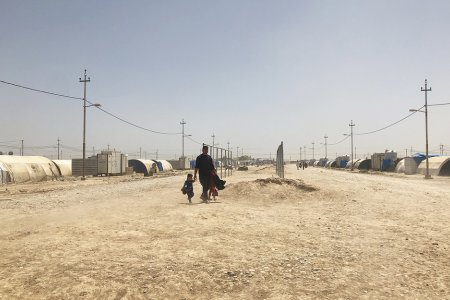 Candida Lobes
Analysis
Candida Lobes
Analysis
12/19/2023
Fabrice Weissman
Challenging the idea that humanitarian actors can act free from politics by virtue of their principles, this chapter argues that the politicization of humanitarian aid is in fact the primary condition for its deployment. Humanitarian actors can only act if they maintain a balance between their own interests and those of people in positions of power. This raises a crucial ethical question: At what point do humanitarian organisations consider that deals reached with political powers cross the blurred but very real line beyond which humanitarian assistance does more harm than good?
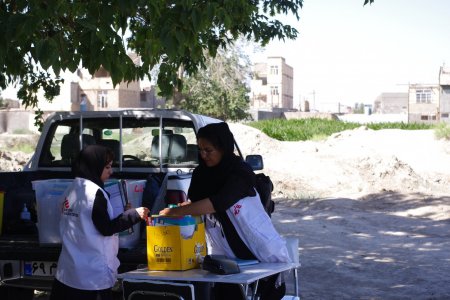 MSF
Analysis
MSF
Analysis
09/18/2020
Fabrice Weissman
On the 31st January, a symposium was held at Sciences Po in support of Fariba Adelkhah and Roland Marchal, researchers at Sciences Po's Center for International Research (CERI) who were arrested in Iran on June 5, 2019. Roland Marchal was released on 20th March 2020 in exchange for an Iranian engineer detained in France. On 6th May Fariba Adelkhah was sentenced to 6 years imprisonment for "propaganda against the political system of the Islamic Republic, and collusion to undermine national security". The researcher was offered conditional release on condition that she terminates her research, but she refused.
The symposium brought together diplomats, journalists, humanitarians and researchers, with the aim of "nourishing reflection about prisoners and hostages, from a political, legal and ethical point of view". Fabrice Weissman presented the experience of Médecins Sans Frontières in the face of kidnappings.
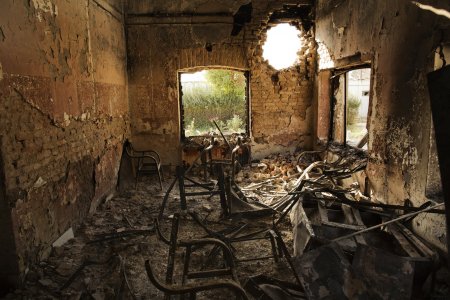 Victor J. Blue
Analysis
Victor J. Blue
Analysis
11/22/2019
Xavier Crombé
Joanna Kuper
This article seeks to document and analyse violence affecting the provision of healthcare by Médecins Sans Frontières (MSF) and its intended beneficiaries in the early stage of the current civil war in South Sudan. Most NGO accounts and quantitative studies of violent attacks on healthcare tend to limit interpretation of their prime motives to the violation of international norms and deprivation of access to health services. Instead, we provide a detailed narrative, which contextualises violent incidents affecting healthcare, with regard for the dynamics of conflict in South Sudan as well as MSF’s operational decisions, and which combines and contrasts institutional and academic sources with direct testimonies from local MSF personnel and other residents. This approach offers greater insight not only into the circumstances and logics of violence but also into the concrete ways in which healthcare practices adapt in the face of attacks and how these may reveal and put to the test the reciprocal expectations binding international and local health practitioners in crisis situations.
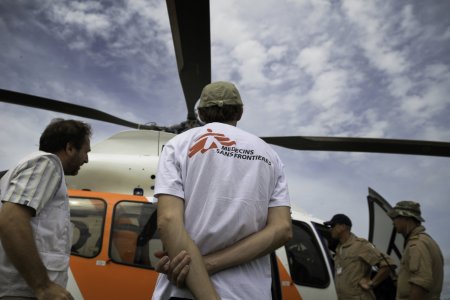 Robin Meldrum/MSF
Analysis
Robin Meldrum/MSF
Analysis
11/22/2019
Fabrice Weissman
This article discusses the policy of absolute secrecy on abductions adopted by aid organisations. It argues that the information blackout on past and current cases is to a large extent a function of the growing role of private security companies in the aid sector, which promote a ‘pay, don’t say’ policy as a default option, whatever the situation. The article contends that secrecy is as much an impediment to resolving current cases as it is to preventing and managing future ones. It suggests abandoning the policy of strict confidentiality in all circumstances – a policy that is as dangerous as it is easy to apply – in favour of a more nuanced and challenging approach determining how much to publicise ongoing and past cases for each audience, always keeping in mind the interests of current and potential hostages.
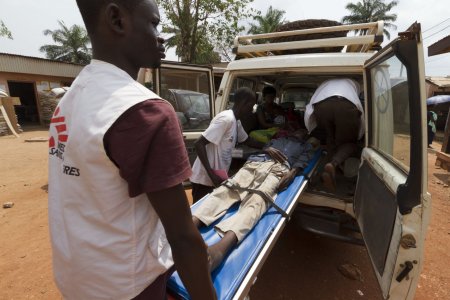 Andre Quillien
Review
Andre Quillien
Review
11/24/2017
Kevin McMahon
Kevin MacMahon's review of "Saving Lives and Staying Alive: Humanitarian Security in the Age of Risk Management" (Michaël Neuman and Fabrice Weissman, London: C. Hurst & Co, 2016) is published in the Journal for the Study of Peace and Conflict (2016, pages 69-70).
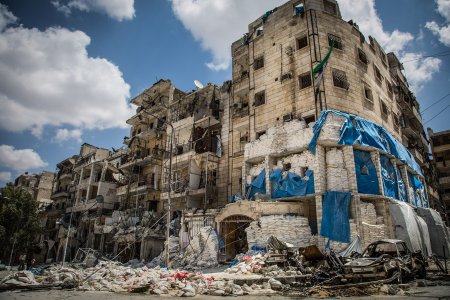 Karam Almasri
Interview
Karam Almasri
Interview
02/15/2017
Pierre Mendiharat
Interview with Pierre Mendiharat, deputy director of operations (MSF).
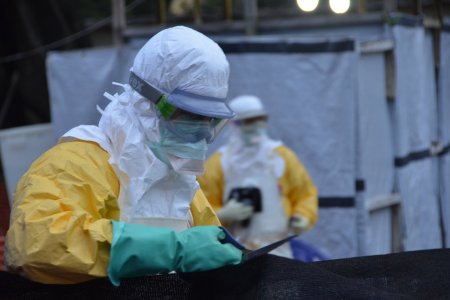 Julien Rey
Op-ed
Julien Rey
Op-ed
04/15/2016
Fabrice Weissman
Michaël Neuman
Since the 1990s and the rise of conflicts in West Africa, Somalia, Chechnya, the former Yugoslavia and Africa's Great Lakes region, humanitarian organisations have been warning of greater insecurity for their staff. These observations are bolstered by surveys aimed at objectively quantifying violence against humanitarian workers.
 Francesco Zizola
Analysis
Francesco Zizola
Analysis
01/30/2015
Fabrice Weissman
This article is an English translation of an interview of Fabrice Weissman about the State of the Humanitarian Sector, in Revue Internationale et Stratégique (n°98, 2015/2) published by the Institut de Relations Internationales et Stratégiques
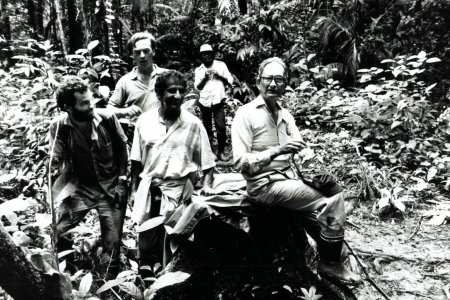 MSF
Analysis
MSF
Analysis
02/15/2017
Michaël Neuman
This article has been inspired by an analysis conducted by MSF-Crash of humanitarian security management and why and in what ways it is evolving. We endeavour not only to describe humanitarian imagery, but to analyse its consequences - the risks it generates for aid workers operating in perilous situations.
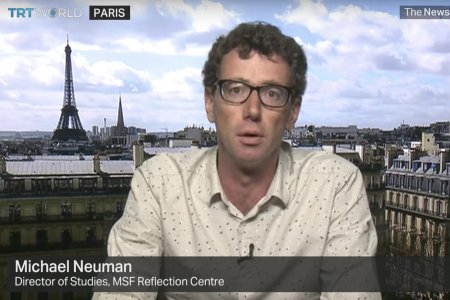 TRT
In the media
TRT
In the media
08/25/2016
Michaël Neuman
Michael Neuman is interviewed by TRT World about Doctors Without Borders/MSF's decision to pull out of Yemen and humanitarian security, challenging the idea that humanitarian action has become a greater danger to aid workers.
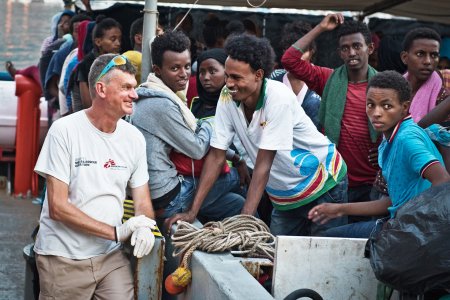 Sara Creta
Video
Sara Creta
Video
07/26/2016
Michaël Neuman
Fabrice Weissman
In recent years, fear-mongering reports based on hard data have been describing a world of ever-increasing danger for aid workers. The book "Saving lives and staying alive" explores this observation and compares it with MSF's experience of working in particularly dangerous regions.
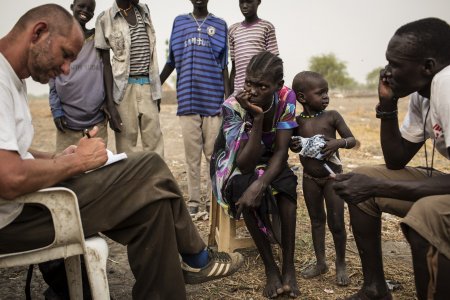 Siegfried Modola
Articles and blog
Siegfried Modola
Articles and blog
05/12/2016
Michaël Neuman
In "Saving Lives and Staying Alive: Humanitarian Security in the Age of Risk Management" Michaël Neuman and his colleague Fabrice Weissman analyze some of the drivers of professionalization in the context of humanitarian security and its subsequent impact on humanitarian practices through a collection of MSF case studies.
 Candida Lobes
Analysis
Candida Lobes
Analysis








